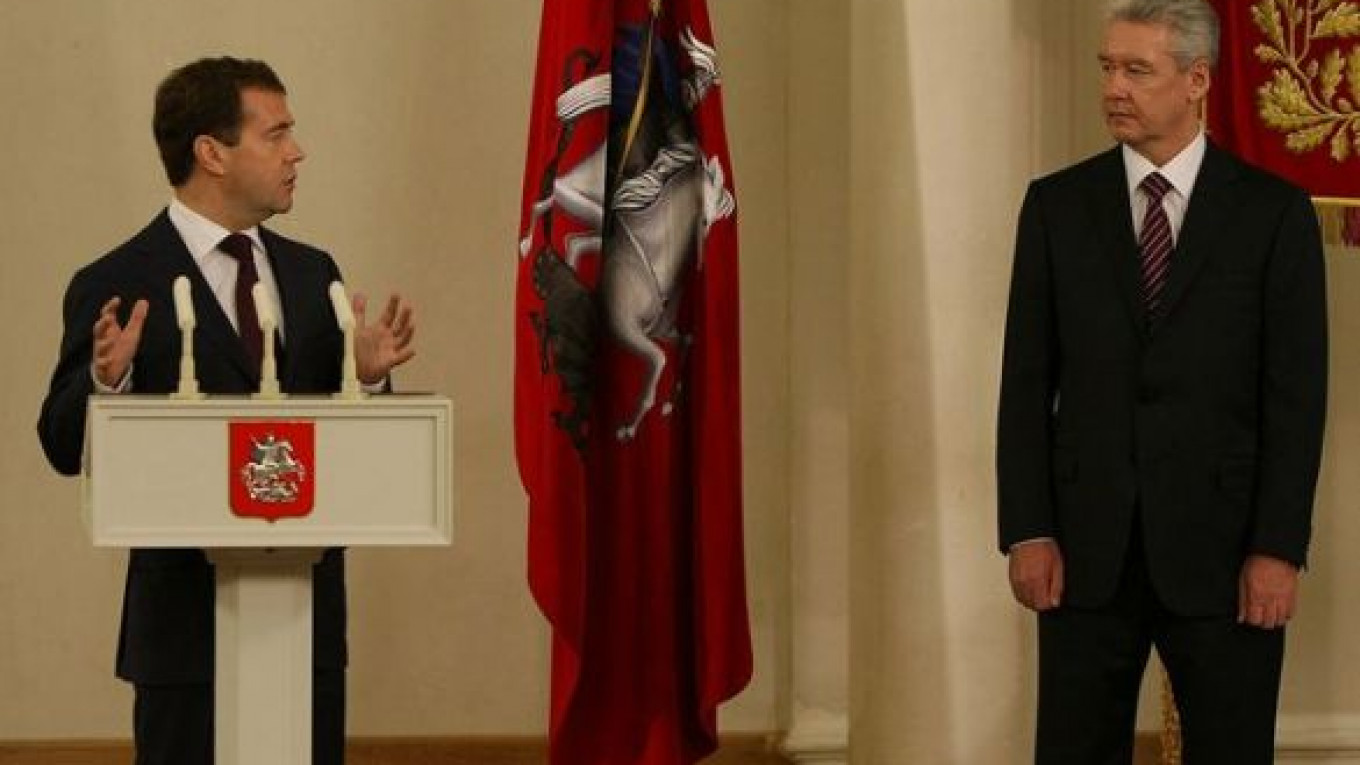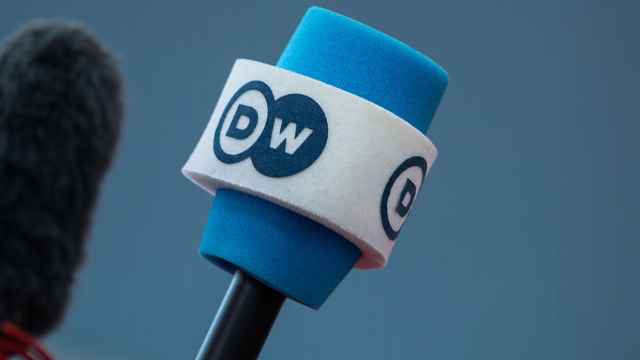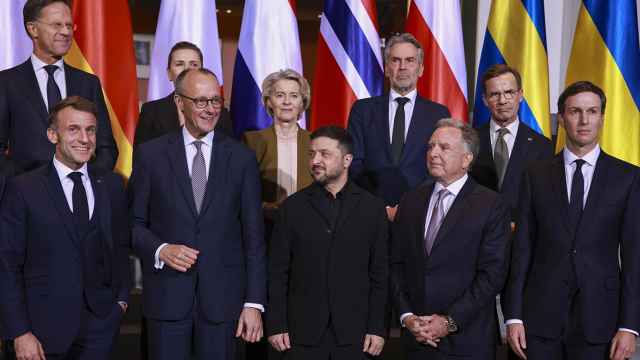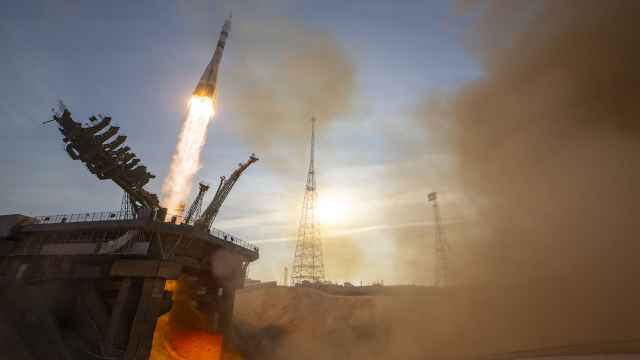If you want to see an achievement of Mayor Sergei Sobyanin, it is probably best to visit Gorky Park.
The sprawling recreation ground in the city's center, which has been emblematic of the Soviet Union since Western readers fell in love with Martin Cruz Smith's 1981 thriller "Gorky Park," has been subject to a massive revamping this summer that has all the hallmarks of a new beginning.
Gone are shaky carousels, roller coasters and other fairground attractions, which seemed mandatory for a city park during the past 20 post-Soviet years. Instead, there is free Wi-Fi, fancy restaurants, designer restrooms and the trendy Boule Cafe.
But getting there usually involves navigating sprawling traffic jams along the Garden Ring — no difference from the times of Yury Luzhkov, Sobyanin's predecessor who had governed Moscow for 18 years until President Dmitry Medvedev fired him in September 2010 for "loss of confidence."
Improving Moscow traffic and the real estate situation, where demand outpaces supply despite sky-high prices, has been seen as Sobyanin’s main tasks — along with replacing Luzhkov’s crew. But so far, only one of the three tasks appears to have been fulfilled: replacing Luzhkov’s team.
Sobyanin promised on Thursday that his government would end the city's "transport collapse" by introducing methods he claimed are used in other European capitals — by expanding public transport below and above ground, designating bus lanes, creating more parking space and developing taxi services.
"This allows Moscow to solve its transport problems not in 10 to 20 years but the midterm perspective," Sobyanin, who assumed office exactly one year ago this Friday, reporters at a televised news briefing.
Sobyanin also promised to do "everything possible" so that no new skyscrapers will be built in the city, that historic buildings will not be destroyed and that housing will become cheaper. He praised an 8 percent reduction in crime rates over the first nine months of the year and announced a fresh crackdown on illegal migrants.
He also suggested that First Deputy Mayor Vladimir Resin might take a seat in the State Duma after the Dec. 4 elections. Resin, 75, is in seventh place on the ruling United Russia party's for Moscow.
Given that he is seen as Luzhkov's last close confidant in City Hall, Resin's departure would signal another break with the past under Sobyanin.
The new mayor earlier fired Deputy Mayors Yury Roslyak and Alexander Ryabinin, five regional prefects and City Hall spokesman Sergei Tsoi, but critics have maintained that he was shying away from real reforms by keeping Resin and many other key Luzhkov-appointed officials.
Sobyanin refused on Thursday to put any personal blame on Luzhkov, but said the traffic situation stemmed from "misguided urban development policies." Resin had overseen the construction sector under Luzhkov.
The mayor's more than hour-long briefing on Thursday came on the heels of an almost 80-minute long address to the City Duma on Wednesday, in which he to fundamentally "change the ideology of the city's development," especially in the construction sector, and promised to spend another $2 billion on making life more comfortable for Muscovites.
Sobyanin argued that City Hall's previous construction policies had facilitated the catastrophic traffic by developing too much commercial real estate in the historic center.
But skeptics say that neither his publicity offensive nor his first one-year record prove that the mayor is more able to solve the giant city's problems than his predecessor.
"I fail to see any plan or system of how to achieve improvement," Sergei Mitrokhin, chairman of the liberal Yabloko party, said about Sobyanin's transport policies.
City Hall's introduction of bus lanes earlier this year is a good example, he said, citing criticism by motorist rights groups who say the reduction of road space only leads to more congestion.
City officials responded to this earlier this week by promising that the lanes would be opened for cars, not just buses, during nighttime. However, Sobyanin defended the decision in the City Duma on Wednesday by saying buses now can drive between 20 and 40 percent faster because of the lanes.
On real estate, while Sobyanin's decision to impose a ban on new construction in the city center was a welcome move, construction of cheap housing was also stalled, said Mitrokhin, who was a City Duma member from 2005 to 2009.
"What we see is stagnation," he said.
Sobyanin said the construction ban is necessary while City Hall reviews previous planning decisions, but critics argued that it only leads to further price increases as demand keeps outpacing supply.
Many analysts say that rather than problem solving, Sobyanin's real mission is to return the city's sprawling bureaucratic machine firmly under Kremlin control.
While the stiff and dull Sobyanin is no match for the charismatic Luzhkov, many see his appointment dictated simply by the Kremlin's eagerness to remove the previous independent-minded mayor.
Before becoming mayor, Sobyanin, who hails from the western Siberian region of Tyumen, served as Vladimir Putin's chief of staff during Putin's tenures in the Kremlin from 2000 to 2008 and in the government after that.
As president, Putin abolished the direct election of governors, thus also reducing the mayor of Moscow to an appointed official because the capital has the status of a city state.
Nikolai Petrov, an analyst with the Carnegie Moscow Center, argued that as a mayor, Sobyanin was no match to his predecessor.
"Luzhkov loved to do this and knew the city much better," he said.
Sobyanin's task, he said, was to destroy the autonomous political machine that was built by Luzhkov in the years up to fall 2010.
"His task is to make people forget about Luzhkov," he added.
Mitrokhin agreed by saying that under Luzhkov the city was not under full federal control. "Under Sobyanin, the Kremlin can be happy that there will no surprises," he said.
A Message from The Moscow Times:
Dear readers,
We are facing unprecedented challenges. Russia's Prosecutor General's Office has designated The Moscow Times as an "undesirable" organization, criminalizing our work and putting our staff at risk of prosecution. This follows our earlier unjust labeling as a "foreign agent."
These actions are direct attempts to silence independent journalism in Russia. The authorities claim our work "discredits the decisions of the Russian leadership." We see things differently: we strive to provide accurate, unbiased reporting on Russia.
We, the journalists of The Moscow Times, refuse to be silenced. But to continue our work, we need your help.
Your support, no matter how small, makes a world of difference. If you can, please support us monthly starting from just $2. It's quick to set up, and every contribution makes a significant impact.
By supporting The Moscow Times, you're defending open, independent journalism in the face of repression. Thank you for standing with us.
Remind me later.







